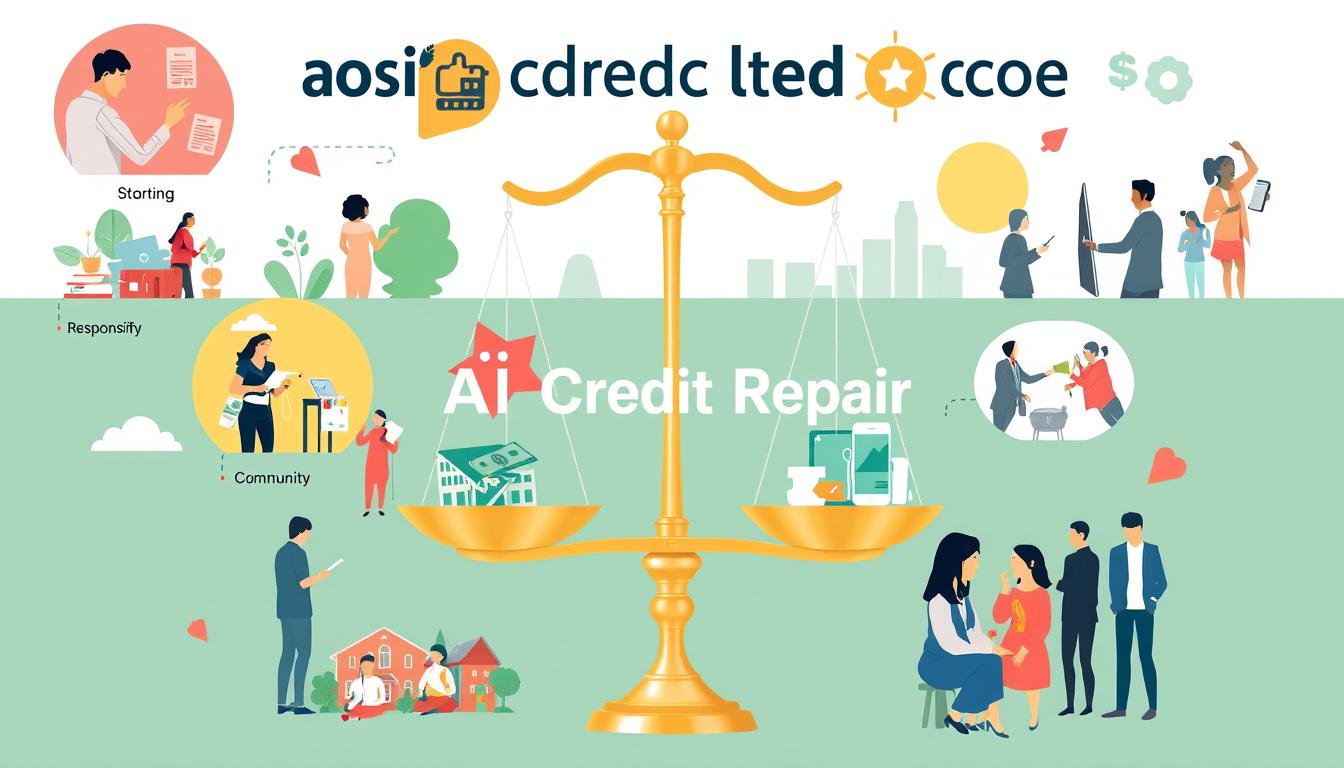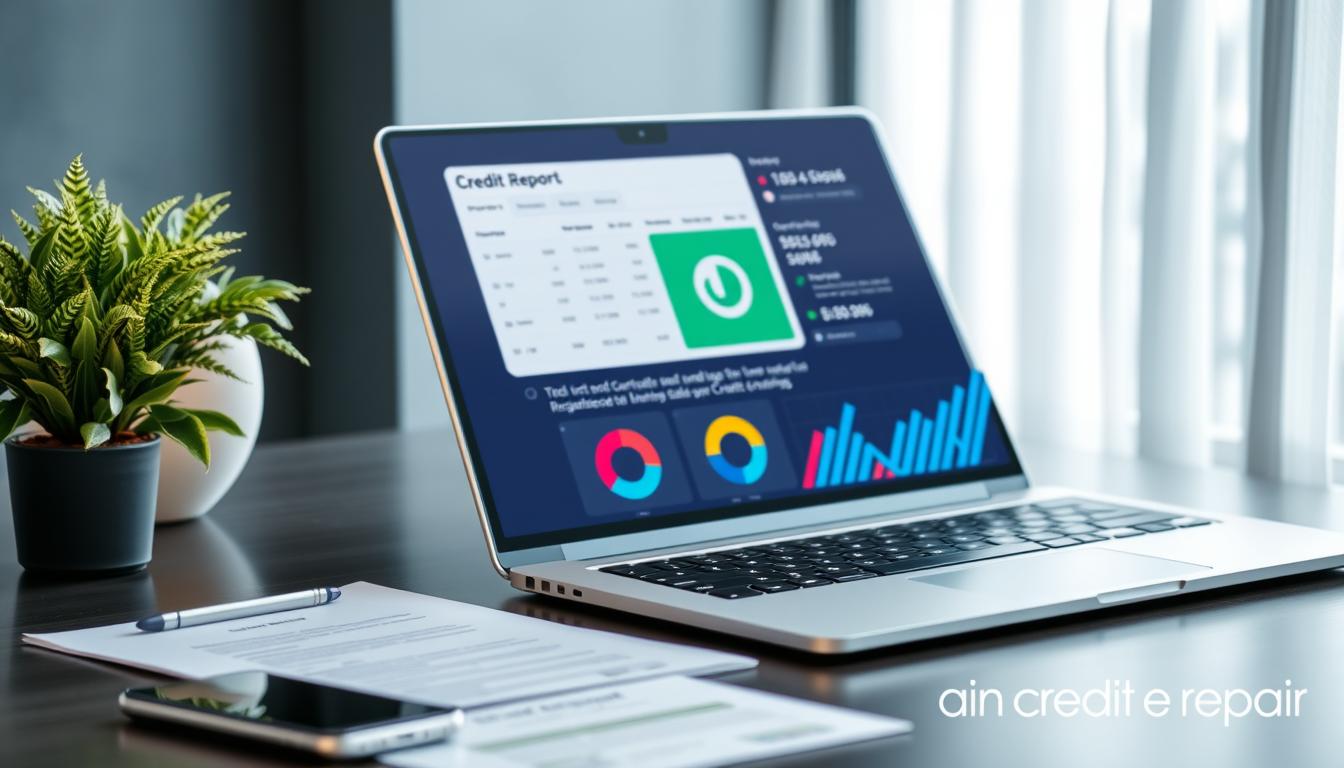Your social credit score can make or break your chances in life. It affects your ability to get loans, services, and even jobs. Let’s explore how to boost your score and open up new opportunities.
We’ll look at practical steps to enhance your social credit score. These strategies can help you unlock a world of possibilities.
Key Takeaways
- Understand the concept of a social credit score and its importance in your daily life.
- Identify the key factors that influence your social credit score, including credit history and payment behavior.
- Learn effective strategies to boost your social credit score, such as paying bills on time and reducing credit card balances.
- Discover the importance of monitoring your credit report and addressing any errors or disputes.
- Recognize the role of patience and persistence in building and maintaining a strong social credit profile.
Understanding Your Social Credit Score
A social credit score measures your trustworthiness and reliability in today’s digital world. This numerical value has become increasingly important. Let’s explore what it means and why it matters.
What is a Social Credit Score?
A social credit score reflects your behavior, finances, and social connections. Organizations use it to assess your creditworthiness and employment potential. It can also determine your access to various services.
Why is a Good Social Credit Score Important?
A good social credit score opens doors to many opportunities. It can improve your access to housing and financial services. You may also find better job prospects with a high score.
A low score can make it hard to get loans or rent apartments. It might even affect your ability to find work. Your score goes beyond finances, showing your reliability and responsibility.
Managing your social credit score is crucial for success. Stay informed and take action to improve it. This can lead to a more prosperous and fulfilling life.
Factors Affecting Your Social Credit Score
Your social credit score shows how financially responsible you are. Several factors can impact this score. Understanding these factors helps maintain a healthy credit profile.
Credit History and Payment Behavior
Your credit history and payment behavior greatly influence your social credit score. Paying bills, loans, and credit cards on time helps your score. Late or missed payments can hurt it.
These actions show how well you handle your finances. Good habits build trust with lenders and boost your score.
Utilization of Credit
Your credit utilization ratio also affects your social credit score. This ratio compares your used credit to your total available credit. Keeping credit card balances low improves your score.
Aim to use less than 30% of your available credit. For example, if your limit is $10,000, try to keep your balance under $3,000.

“Maintaining a positive credit history and responsible credit utilization are crucial for building and preserving a high social credit score.”
Understanding these factors helps you manage your finances better. You can take steps to improve your creditworthiness. This knowledge empowers you to build a strong social credit score.
How to Improve Your Social Credit Score
Boosting your social credit score opens doors to better financial opportunities. It also helps build a positive reputation. Here are some strategies to increase your score:
Regular credit report checks can spot errors that hurt your score. Addressing these issues quickly can improve your standing.
- Monitor Your Credit Report – Regularly reviewing your credit report can help you identify and address any errors or discrepancies that could be negatively impacting your score.
- Pay Bills on Time – Making timely payments on all your bills, including utilities, rent, and credit card balances, is crucial for building a strong credit history and improving your social credit score.
- Reduce Credit Card Balances – Keeping your credit card balances low, ideally below 30% of your available credit limit, can positively impact your credit utilization ratio and boost your social credit score.
- Build a Positive Credit History – Becoming an authorized user on someone else’s established credit account or applying for a secured credit card can help you build a positive credit history and improve your social credit score.
These steps to boost social credit score can help you take charge of your finances. They’ll also improve your overall how to improve social credit score.
Implementing these strategies to increase social credit score can lead to better financial well-being. Your efforts will pay off in the long run.
| Strategies | Impact on Social Credit Score |
|---|---|
| Monitor Credit Report | Helps identify and address errors, leading to score improvements |
| Pay Bills on Time | Builds positive payment history, a key factor in social credit score |
| Reduce Credit Card Balances | Improves credit utilization ratio, a major component of social credit score |
| Build Positive Credit History | Demonstrates responsible credit management, boosting social credit score |
“Improving your social credit score is a journey, but with the right strategies and persistence, you can achieve the financial freedom and opportunities you deserve.”
Monitoring Your Credit Report
Keeping an eye on your credit report is key to a strong social credit score. Regular checks help spot errors that might hurt your score. This simple step can make a big difference.
Accessing Your Credit Report
Getting your credit report is easy. You can get a free copy once a year from three main credit bureaus. These are Experian, Equifax, and TransUnion.
This lets you stay informed about your credit history and financial activities. It’s a smart way to keep track of your financial health.
Identifying Errors and Disputes
Look closely for mistakes in your credit report. These could be wrong account info or outdated payment histories. Watch out for any signs of fraud too.
If you find errors, dispute them right away. Contact the credit bureaus to fix these issues. This ensures your report shows your true financial standing.
Taking charge of your credit report can boost your social credit score. It can lead to new chances and better financial health.
| Step | Action |
|---|---|
| 1. Access your credit report | Request a free copy of your credit report from the three major credit bureaus: Experian, Equifax, and TransUnion. |
| 2. Review your credit report | Carefully examine your credit report for any errors or inaccuracies. |
| 3. Dispute errors | If you find any discrepancies, initiate a dispute with the credit bureaus to have them corrected. |
| 4. Monitor your credit report | Regularly review your credit report to ensure it remains accurate and up-to-date. |
By monitoring your credit report, accessing your credit report, and disputing errors on your credit report, you can boost your social credit score. This can open new doors and improve your finances.

“Regularly monitoring your credit report is like taking a financial health check-up – it’s essential for maintaining a strong social credit score and financial well-being.”
Paying Bills on Time
Timely bill payments are crucial for a high social credit score. This includes credit cards, utilities, and other regular payments. On-time payments show reliability and trustworthiness, key for a good score.
Paying bills promptly helps avoid fees and affects your social credit score. Lenders use this info to assess your financial responsibility. It helps determine your creditworthiness.
Here are some tips to ensure on-time payments and maintain a good social credit score:
- Set up automatic bill payments to ensure you never miss a due date.
- Review your bills and payment schedules regularly to stay organized.
- Use calendar reminders or payment notification apps to stay on top of upcoming due dates.
- If you anticipate a late payment, contact your creditors as soon as possible to discuss options and avoid penalties.
Making paying bills on time a habit improves your social credit score. It shows financial responsibility to potential lenders and service providers.
| On-Time Payment | Late Payment |
|---|---|
| Enhances social credit score | Negatively impacts social credit score |
| Avoids late fees and penalties | Incurs late fees and penalties |
| Builds trust with creditors | Undermines credibility with creditors |
“Consistent on-time payments are the foundation of a strong social credit score.”
Reducing Credit Card Balances
Lowering credit card balances can boost your social credit score. Aim to keep your credit utilization below 30%. Consider debt consolidation if you’re struggling with high balances.
Debt Consolidation Strategies
Debt consolidation can help reduce credit card balances and simplify debt management. It combines multiple debts into one lower-interest loan. This approach can improve your credit utilization ratio and social credit score.
Common debt consolidation strategies include:
- Applying for a balance transfer credit card with a 0% introductory APR
- Taking out a personal loan to pay off high-interest credit card balances
- Negotiating with creditors for lower interest rates or payment plans
Compare interest rates, fees, and repayment terms when exploring debt consolidation options. Find the best solution for your unique financial situation. Smart debt consolidation can improve your social credit score.
| Debt Consolidation Strategy | Potential Benefits | Considerations |
|---|---|---|
| Balance Transfer Credit Card |
|
|
| Personal Loan |
|
|
| Negotiation with Creditors |
|
|
These debt consolidation strategies can help reduce your credit card balances. By implementing them, you can improve your social credit score.
Building a Positive Credit History
A good credit history is key to a high social credit score. One way to build credit is becoming an authorized user on someone else’s credit card.
Becoming an Authorized User
As an authorized user, you’re added to another person’s credit card account. This person is usually a family member or close friend with good credit.
Their account history and payments can show up on your credit report. This can boost your credit score.
- Look for someone with a long-standing, well-managed credit card account and a positive payment history.
- Ask the primary account holder to add you as an authorized user, which may require providing personal information.
- Once added, the account’s history will start contributing to your building positive credit history.
This method helps you how to build credit history without applying for your own card. Make sure the account holder pays on time to avoid hurting your credit.
Using someone else’s good credit can improve your social credit score. Building strong credit takes time, but the rewards are worth it.
Maintaining a Good Credit Mix
Your social credit score considers the types of credit accounts you manage. Lenders want to see that you can handle a diverse credit mix. This mix shows your ability to manage various financial obligations.
A healthy credit mix includes different account types. These may be credit cards, auto loans, mortgages, and personal loans. Managing these types of credit accounts can boost your social credit score.
A diverse credit profile shows financial maturity. Lenders see it as a sign of responsibility. This view can lead to a higher social credit score.
| Types of Credit Accounts | How They Affect Your Social Credit Score |
|---|---|
| Credit Cards | Demonstrate your ability to manage revolving credit responsibly. |
| Installment Loans (e.g., auto, personal, or student loans) | Show that you can handle fixed monthly payments over time. |
| Mortgage | Prove your capability to manage a large, long-term financial obligation. |
A healthy credit mix is crucial for improving your social credit score. It’s one key factor in determining your overall creditworthiness. Remember, it’s just part of the bigger picture.

Credit Utilization Ratio
Your credit utilization ratio greatly affects your social credit score. It measures how much credit you use versus your total available credit. Keeping this ratio below 30% can boost your score.
Calculating Your Credit Utilization
To calculate your credit utilization ratio, follow these steps:
- Identify your total credit limit across all your credit accounts.
- Determine the total amount of credit you’re currently using.
- Divide the amount of credit you’re using by your total credit limit.
- Multiply the result by 100 to get your credit utilization ratio as a percentage.
Let’s say your total credit limit is $10,000. You’re using $3,000 in credit. Your credit utilization ratio would be 30%.
| Credit Utilization Ratio | Impact on Social Credit Score |
|---|---|
| Below 30% | Positive impact on your social credit score |
| Above 30% | Negative impact on your social credit score |
A low credit utilization ratio shows responsible credit management. This can positively influence your social credit score.
“Maintaining a low credit utilization ratio is one of the most effective ways to improve your social credit score and demonstrate your financial responsibility.”
Patience and Persistence
Boosting your social credit score takes time. It demands patience and persistence in managing your credit. Stick to the strategies outlined here for positive results.
Consistency is key in social credit score improvement. Don’t let slow progress discourage you. Responsible financial behavior builds a strong credit profile over time.
“Rome wasn’t built in a day, and your credit score won’t be either. Stick with it, and you’ll see the results you’re looking for.”
Think of credit improvement as a marathon, not a sprint. Stay focused and trust the process. Your efforts will pay off in the long run.
With patience and diligence, you’ll achieve a stronger credit standing. This can open up new opportunities for you.

| Tip | Description |
|---|---|
| Patience | Understand that improving your social credit score is a gradual process that requires time and consistent effort. |
| Persistence | Remain committed to the credit-building strategies outlined in this article, even when progress seems slow. |
| Consistency | Maintain responsible financial behaviors, such as making timely payments and managing credit utilization, to see long-term improvements in your social credit score. |
Conclusion
Understanding the importance of a strong social credit score can unlock greater opportunities. By using the strategies in this article, you can boost your financial well-being. Building a robust score takes time, but dedication will help you achieve your goals.
Key takeaways include monitoring your credit report and paying bills on time. Managing credit card balances and maintaining a healthy credit mix are also crucial. These steps will steadily improve your score and open doors to better financial prospects.
Enhancing your social credit score is a long-term process. Stay patient and committed to the journey. With the right approach, you’ll take control of your financial future.
Remember, a high social credit score offers numerous benefits. Keep working towards it, and you’ll see positive changes in your financial life.

